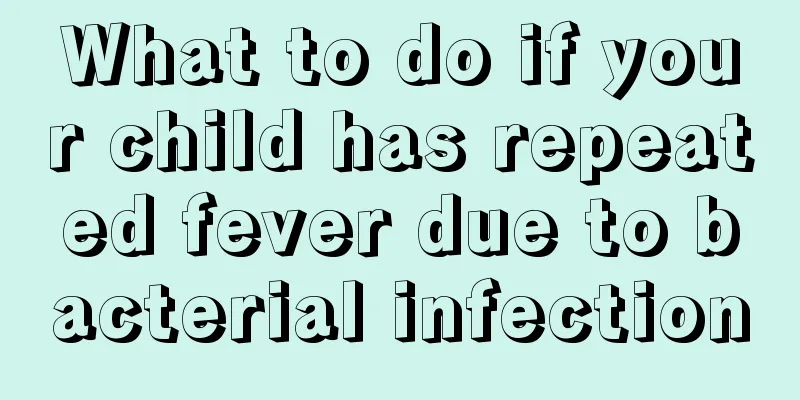Treatment of valvular heart disease in children

|
Children's heart valve disease, everyone will feel very unfamiliar after hearing about it. This disease has a great impact on children's bodies. This heart valve disease is also a type of heart disease. Sometimes because of the impact of the disease, children also feel that they have difficulty breathing and their chests are particularly stuffy. These symptoms are very common symptoms of heart valve disease. So how should children with heart valve disease be treated? Treatment principles In terms of treatment, valvular heart disease is usually treated initially with medical methods. When conservative medical treatment cannot satisfactorily correct hemodynamics, further interventional or surgical intervention should be adopted. Mild patients Patients with mild symptoms should try to avoid heavy physical labor or strenuous exercise in daily life. Once symptoms of heart failure appear, they should actively seek medical attention and follow the doctor's advice for symptomatic treatment. If the disease is complicated by upper respiratory tract infection, rheumatic fever or infective endocarditis, symptomatic treatment should be given at the same time. Common complications such as atrial fibrillation and peripheral vascular embolism caused by valvular disease should also be treated symptomatically under the guidance of a physician. Severely ill patients Some patients have severe lesions and ultimately need interventional methods or surgical valve repair/replacement to resolve valve problems. Asymptomatic patients For some patients, although they have valvular disease, they do not have any clinical symptoms or discomfort, but this does not mean that we should relax our vigilance, do not require any intervention, or even ignore diagnosis and treatment. It is still recommended to actively complete relevant examinations, clarify the cause and valve disease status, provide necessary symptomatic treatment, and even require surgical operation as soon as possible. Even if no intervention is needed at the moment, you should maintain a good lifestyle in your daily life, such as maintaining a regular schedule, avoiding staying up late and overwork, eating a balanced diet, avoiding spicy food, having a positive and optimistic attitude towards life, and avoiding frequent and excessive mood swings. In addition, follow-up and regular examinations should be performed to understand the progression of the disease and comply with reasonable treatment. Diet and health care 1. Eat light food and pay attention to dietary regularity. 2. Eat a reasonable diet according to the doctor's advice. (1) Rheumatic heart disease patients are prone to edema, so salt intake must be limited to prevent edema from worsening and the burden on the heart from increasing. Generally speaking, a daily salt intake of 1 to 5 grams is more appropriate for patients with rheumatic heart disease. (2) Reduce high-fat diet: High-fat diet is difficult to digest and will increase the burden on the heart. Some people may even cause arrhythmia, so you should use less or no high-fat diet. (3) Similar to the principle of limiting salt intake, patients with rheumatic heart disease should eat less sodium-rich foods such as bananas to avoid pulmonary edema. (4) Drink beverages slowly: Drinking a large amount of water, tea, soup, fruit juice, soda or other beverages at one time will rapidly increase blood volume, thereby increasing the burden on the heart. Therefore, do not drink too much food or drink, it is best not to exceed 500 ml at a time. When you need to drink more water, drink it in several times, a little less each time, with longer intervals between each drink. (5) Avoid stimulating foods and drinks and stimulant drugs: chili peppers, ginger, pepper, tobacco, alcohol, and drinking large amounts of strong tea. Taking stimulant drugs such as caffeine and amphetamines can also put a burden on the heart. This is especially important for patients with rheumatic heart disease who have poor heart function. When treating a child's heart valve disease, remember to protect the child's heart to prevent damage to the child's heart. At the same time, the child should eat more foods that are good for the heart. The child should not exercise vigorously. If such a disease is not treated, it will worsen. If necessary, the child should be treated with surgery in a timely manner. When treating the child's disease, the child's mental state should also be adjusted. |
<<: Symptoms of moderate anemia in children
>>: What should children with severe anemia eat?
Recommend
Treatment of tonsillitis in children
Tonsillitis in children is mainly divided into ac...
What are the good foods for children to take to supplement vitamins?
Children need a lot of nutrients during their gro...
How to treat vitiligo in children effectively
Children are the hope of the motherland and the f...
How to treat abdominal pain in children
Every child will always encounter some health pro...
Is ADHD in children treatable?
ADHD is a very serious problem for some children ...
What is the role of blood test for infants?
Many mothers do not understand the purpose of hav...
What is ADHD Treatment?
ADHD is a very common disease among children, but...
3. Children's gums are swollen and painful due to inflammation
Children are the group most likely to get inflame...
What should I do if my child has a stomachache? These methods deal with
For very young children, they may not be able to ...
How many months can a pacifier be used?
If you have a child, you must know what a pacifie...
What should I do if my one-year-old baby suddenly doesn't like to eat?
It is a common situation for many parents that on...
What are the symptoms of rhinitis in children?
Children are the treasures of every family. Some ...
How to best educate children with ADHD
Children with ADHD give their parents a lot of he...
At what age do children have crescents on their fingers?
The half-moons on our fingers actually reflect ou...
What is calcification of children's teeth?
For most parents, their children's dental hea...









